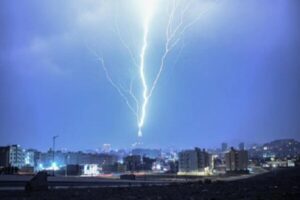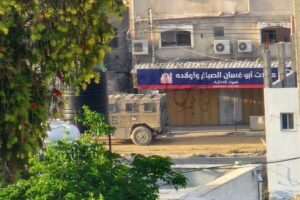The World Health Organization (WHO) has sounded the alarm about the dire humanitarian situation in the Gaza Strip amid the temporary Israeli ceasefire warning that disease could be a bigger killer than bombs.
More people could die from disease than from the Israeli strikes on Gaza if the health and sanitation system there is not restored, a WHO spokesperson said on Tuesday.
The Israeli regime forces launched a genocidal war on Gaza after the Hamas resistance group started a special operation north of Gaza early last month in response to the intensified decades-long Israeli atrocities.
Since Oct. 7, Gazan health officials have reported that the Israeli regime forces attacks on Gaza so far have killed more than 15,000 people of which approximately 40 percent are children, with many more dead feared to be under the rubble. The UN has confirmed these numbers.
Israel has said that it will resume its strikes on Gaza on Thursday when an extended ceasefire with Hamas expires.
Hamas had said it wanted to prolong the ceasefire if the Israeli regime made serious efforts to release more Palestinian prisoners. Israel had also expressed willingness to extend the ceasefire in return for the release of 50 more captives.
The temporary ceasefire took effect in Gaza on Friday, giving Palestinians in the besieged territory a brief respite from Israel’s 7-week brutal bombings, shelling and direct land attacks with ground forces and tanks.
“Eventually we will see more people dying from disease than we are even seeing from the bombardment if we are not able to put back (together) this health system,” said the WHO’s Margaret Harris at a UN briefing in Geneva.
She repeated concerns about a rise in outbreaks of infectious diseases, particularly diarrheal diseases.
Citing a UN report on the living conditions of displaced residents in northern Gaza, she said: “(There are) no medicines, no vaccination activities, no access to safe water and hygiene and no food. We saw a very high number of cases of diarrhea among infants,” she said.
She described the collapse of Al Shifa Hospital in northern Gaza as a “tragedy” and voiced concern about the detention of some of its medical staff by Israeli forces during a WHO evacuation convoy.
James Elder, a spokesperson from the UN Children’s Agency in Gaza, told reporters by videolink that hospitals in Gaza were full of children with war wounds and gastroenteritis from drinking dirty water.
“I met a lot of parents… They know exactly what their children need. They don’t have access to safe water and it’s crippling them,” he said.
He described seeing one child with part of his leg missing lying on the hospital floor for several hours, without receiving treatment for a lack of medical staff.
Meanwhile, humanitarian aid has been arriving in Gaza as part of the ceasefire deal. However, UN officials say added relief efforts and more supplies and are needed to meet the huge demands as the Israeli regime forces have cut off food, water, medicine, fuel and electricity in the region housing 2.3mn Palestinians.
UNRWA spokesman in the Gaza Strip said on Monday that the amount of aid that has entered the sector so far is insufficient and some 200 trucks a day of essential necessities and aid for relief are needed for two months in order to improve the humanitarian situation in Gaza.
The spokesman in the sector said 120,000 liters of fuel daily were needed to run the basic services. Also, covers and clothes for children were urgently needed as weather temperatures have dropped in Gaza.
🚨UNRWA spokesman in the Gaza Strip for Al Jazeera Mubasher:
•Aid that has entered the sector so far is insufficient
• We need to enter 200 trucks a day for two months in order to improve the humanitarian situation in the sector
• 120,000 liters of fuel must be introduced… pic.twitter.com/OAvsXmvUlD
— Palestine Now. (@PalestineNW) November 27, 2023
Iran’s Foreign Minister Hossein Amir-Abdollahian said Muslim countries must take stronger steps to support the Palestinian people in the face of the Israeli regime’s atrocities.
In a phone conversation with his Turkish counterpart, Hakan Fidan, on Saturday, Iran’s top diplomat discussed the latest developments in Palestine.
Amir-Abdollahian told Fidan that effective steps must be taken to put an end to the Israeli regime’s crimes against the Palestinian nation once and for all.



